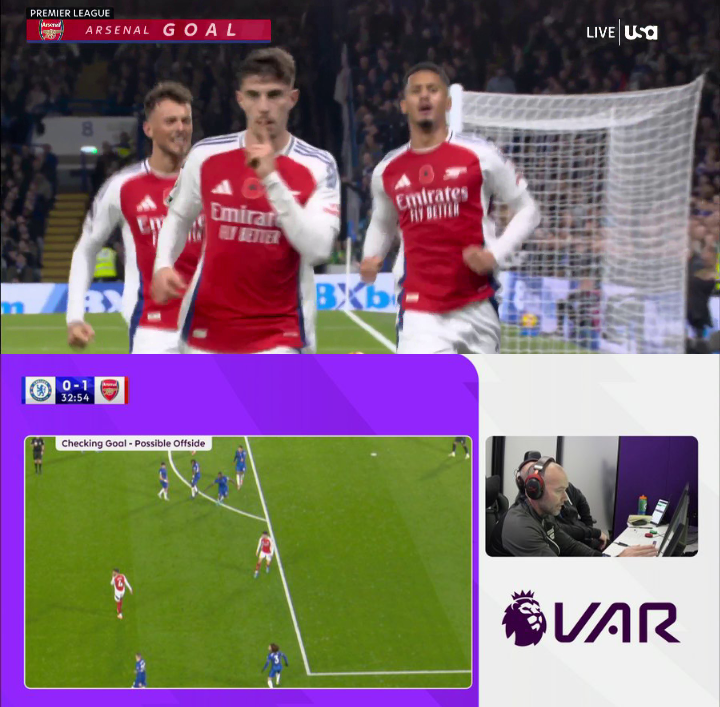Premier League Explains Why Havertz's Goal Was Disallowed by VAR in Chelsea vs. Arsenal Clash
VAR Drama: Premier League Explains the Offside Ruling That Denied Havertz’s Goal

In a recent Premier League game, a big
moment of controversy arose when Arsenal’s Kai Havertz scored a goal that was later overturned by VAR. The incident took place in the 32nd minute, and at first, it seemed that Arsenal had scored a valid goal. However, the Video Assistant Referee (VAR) reviewed the play and ruled that Havertz was offside, recommending the goal be disallowed. The decision frustrated Arsenal fans and sparked debate over why the goal didn’t count.
The Premier League explained that Havertz’s goal was disallowed because he was in an offside position when the ball was passed to him. In football, the offside rule is in place to keep the game fair. A player is considered offside if they are closer to the opponent’s goal than both the ball and the second-last opponent when the ball is passed to them (unless they’re in their own half of the field). If the player in an offside position becomes directly involved in the play, like scoring a goal, the goal won’t count.
#CHEARS – 32’ VAR OVERTURN
Havertz’s goal was initially awarded on-field. VAR checked and confirmed that Havertz was in an offside position and recommended that the goal was disallowed. pic.twitter.com/LZblM7XhoJ
— Premier League Match Centre (@PLMatchCentre) November 10, 2024
The Premier League brought in VAR to help referees make more accurate calls, especially in difficult situations like offsides. These decisions can be challenging for on-field referees, as they must make quick judgments on fast-moving players. VAR can review these moments closely, using slow-motion and drawn lines, to see if a player was offside. This is what happened with Havertz’s goal.
At first, the referee on the field thought the goal was fine. But when VAR took a closer look, it saw that Havertz was slightly offside, so it recommended that the referee disallow the goal. Following this advice, the referee took back the goal, which meant Arsenal’s lead was wiped away. The Premier League later confirmed this decision on their official social media accounts, explaining that Havertz was offside and that the goal couldn’t stand.
The offside rule is important because it prevents players from “goal-hanging” — that is, staying close to the opponent’s goal without any defenders around, waiting for an easy pass. This rule keeps the game balanced, as it forces players to stay in fair positions rather than waiting near the goal. The use of VAR for offside calls ensures that referees catch even the smallest instances of offside to keep the game fair.
Naturally, many Arsenal fans and players were upset by the decision. Celebrations for Havertz’s goal quickly faded when VAR overturned the decision. Fans expressed their frustration online, especially since the offside call was very close. This reaction is common, as many supporters feel that VAR disrupts the game’s flow. However, the Premier League uses VAR to ensure that all calls are as accurate as possible, even if that means disallowing a goal that fans wanted to count.









